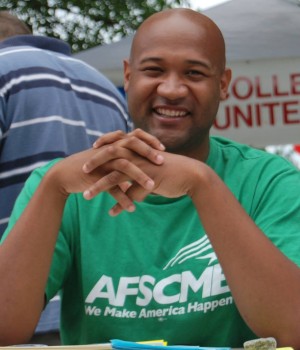As has become increasingly customary among people of color, recently I spoke at length with friends regarding police brutality, and how each of us faces a split decision in confronting it.
On one side is compliancy in the face of injustice; in exchange of defending our dignity as humanity, we accept and tolerate mistreatment at the hands of law enforcement as a survival instinct. Even if in your heart you know you have done nothing wrong and deserve to be conversed with some sense of respect, you will take derision as a means of making it back to the safety of loved ones. Perhaps this is just a more passive form of respectability politics playing out in real time, but after growing up with both the very satirical and the very serious means of avoiding police brutality, it is worth considering why people of color have developed a means for avoiding life-altering escalations. Perhaps it is swallowing ones’ pride or just wanting to get on with life; maybe it is realizing this altercation, however angering, won’t bring down state oppression alone. I doubt anybody gets in their car expecting to be a martyr, even for causes they believe in.
On the other side is the idealism that has erupted in the year since Ferguson; African-Americans have felt a motivation to challenge mistreatment directly and confidently. The old activist adage “The whole world is watching” has become a reality. No longer do folks feel a need to “Yes, sir; no, sir; OK, sir” (not that a female cop is incapable of brutality, but it is almost always a male cop), but instead “Why they hell are you being so damn aggressive?! This is bullshit!” Rightfully so, as white drivers who are not as considerate to passing motorists or who also are missing a license tag normally don’t worry about a violent interaction, as they don’t get pulled over. The privilege to drive a car without being challenged for owning/using/enjoying remains elusive to people of color as studies on the disparities in traffic stops have shown.
After growing up with both the very satirical and the very serious means of avoiding police brutality, it is worth considering why people of color have developed a means for avoiding life-altering escalations.
What is worth considering is that our anger and expectation of change have actually outpaced reforms across the board. In the face of of tentative politicians, wagon circling by law enforcement and their supporters, and a never ending chorus of skeptical “Are you sure?” white Americans, the legal/legislative changes necessary to reform the criminal justice system and law enforcement are absent. Merely asking for acknowledgment of our humanity without a system of enforcement and oversight provides us nothing more than never ending “discourse” that is so common in “serious” conversations on criminal justice/policing reform. Even the in-vogue support for police body cameras wasn’t a universally accepted concept until Ferguson, and after the death of Eric Garner proved the technology effectively useless, it fell out of favor with most grassroots activists (although ironically it remains a popular idea amongst the political establishment).
At the end of the day the solution is neither compliancy in the face of brutality nor an “idealist” expectation of acknowledged humanity — it is eliminating the systemic racism of our justice system and police force, which forces us into a life or death situation for rolling through a stop sign.










